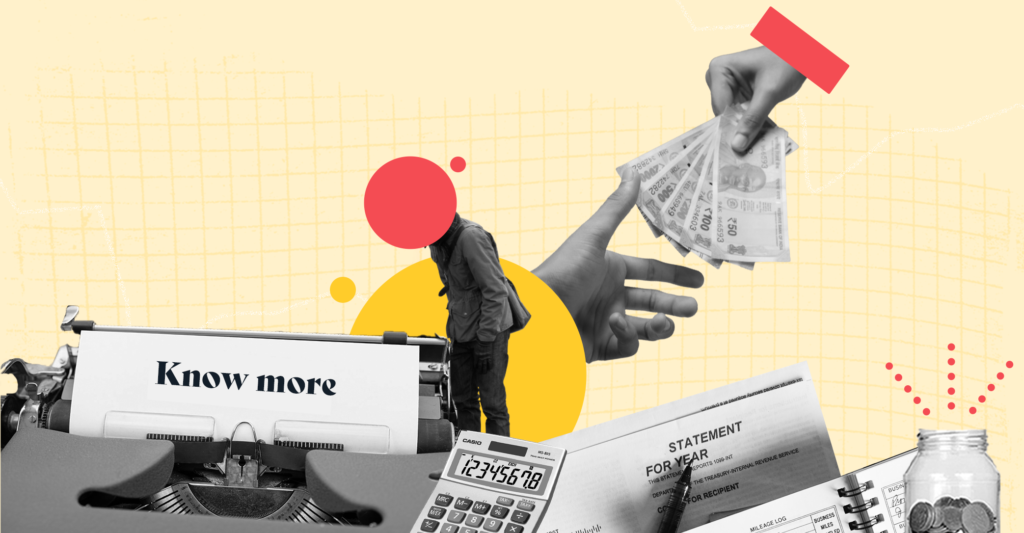Last Updated on May 24, 2022 by
The laws of any country are there to protect its people, and it is the government’s job to help enforce those laws so that the citizens are safeguarded. The income tax that the citizens have to pay the government is also needed to keep these things running smoothly. But of course, the government also helps its citizens, especially those with low income, by offering income tax rebates.
An income tax rebate is a certain amount of refund on the taxes you pay each year. There are many sections under the Income Tax Act of 1961 that ensure that there are some rebates in income taxes for people with low income.
Section 87A of the Income Tax Act ensures the same. This tax rebate is for the low-income or low-salary bracket citizens of India. Let us read more about this section.
Table of Contents
What is Section 87A?
The government of India first introduced Section 87A under the Finance Act of 2003. Citizens of India whose annual income is less than Rs 5 lakh are eligible to file a tax rebate as per this provision. Section 87A of the Income Tax Act basically enables those with lesser income or salary to get a rebate on their annual income tax.
In the beginning, when it was first introduced, the highest amount of money that you could receive as a rebate was Rs 2,000. But since then, there have been many amendments to the section. The limit was increased to Rs 5,000 in 2016. And by 2017, it became Rs 7,500 and was available for individuals who had a net annual income below Rs 3.5 lakh.
But in the Union Budget 2019, it was announced that the rebate limit would go up to Rs 12,500, and the eligibility income was raised to Rs. 5 lakh as well. This means that the highest amount of money you can get back under this Section is Rs 12,500. But, if your total tax is lower than that, then you will just get the tax payable as a refund. Essentially, if your amount payable is greater than Rs 12,500, you will get back only Rs 12,500. But if it is less than that, you will get the whole payable amount back.
Eligibility criteria for filing 87A
There are a few criteria that you have to fulfill so that you can be eligible for Section 87A income tax rebate. The eligibility criteria are listed below.
- To be eligible to file for a 87A Income Tax rebate, the individual has to be a resident of India.
- The rebate is only available for individuals and not for firms, companies, or Hindu Undivided Families (HUF).
- The income of the individual filing for the rebate has to be less than or equal to Rs 5 lakh per annum after the deductions under Section 80 of the Income Tax Act.
- The maximum rebate an individual can receive under this Section is Rs 12,500. If an individual is eligible to pay less than Rs 12,500 as income tax, then the whole amount payable will be their rebate. If your income tax is greater than that, then the maximum amount of rebate you will receive will be Rs 12,500.
- The rebate under Section 87A of the Income Tax Act is applicable to the overall tax liability. But this is done before the cess on Education and Health (4%) is added.
- The senior citizens of India, who fall under the age bracket of 60-80 yrs, are eligible for tax rebates under Section 87A of income tax act.
- Unfortunately, senior citizens who fall under the age bracket of 80 yrs and above do not qualify for tax rebates under Section 87A of income tax act.
- Both the old and new income tax regimes are eligible for rebates under Section 87A. This means you can file a claim for rebate under Section 87A for FY 2017-2018 and 2018-2019.
How can you claim rebate under Section 87A
How does one determine and file rebate under Section 87A of the Income Tax Act? Here is a step-by-step guide to filing a claim for a rebate under Section 87A.
- Firstly, you have to calculate your overall income for the previous financial year.
- Then, from that amount, you will have to deduct all your tax deductions claimed that fall under Section 80 and more.
- This will be considered as the total income after making all the tax deductions for that financial year. This amount is the taxable income on which you will file a claim for rebate under Section 87A.
- Calculate the tax liability as per your taxable income, but don’t add the cess amount before. If your tax liability amount is over Rs 2,000, and your net taxable income is under Rs 5 lakh, then you are eligible for a rebate.
- You can file a claim for the rebate under Section 87A when you are filing for your income tax returns.
Conclusion
As we cover the basics of Section 87A of the Income Tax Act, we hope that you understand this section more and also help you claim a rebate if you pass all the eligibility criteria. Remember that your net taxable income has to be lesser than Rs 5 lakh, and your net payable tax amount has to be greater than Rs 2,000. Also, the highest amount that you can get back as a rebate under this is Rs 12,500. If your total payable tax is lesser than that, then this rebate should bring the net payable amount to zero. But if it is greater, then the cess amount (4%) will be added to whatever amount you still have to pay after the rebate.




